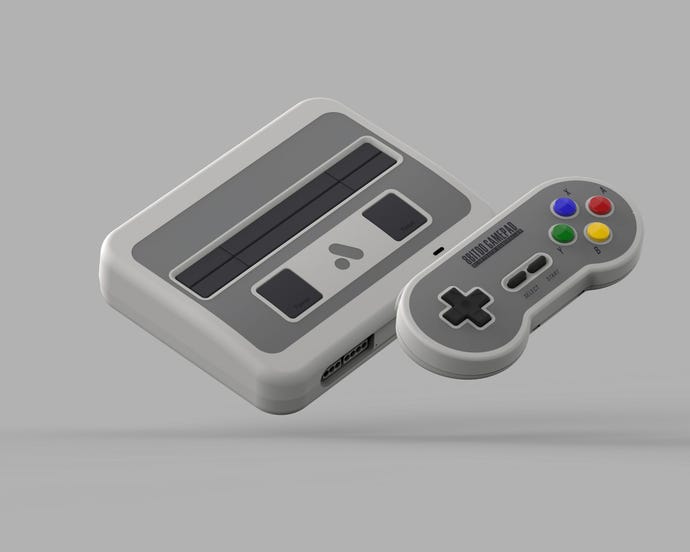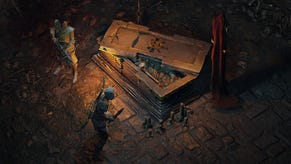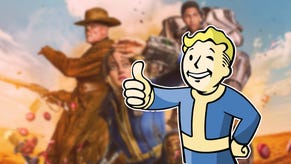The battle for retro perfection with Analogue's Super Nt: a SNES for the modern age
Analogue is on a mission to revitalize the way fans play classic games. The Super Nt is the latest step in that battle.
"All clone systems f**king suck," Analogue CEO Christopher Taber exclaims when asked about the rival products to his company's latest piece of retro gaming hardware. The exasperation in his voice makes clear he isn't just trash talking the competition: as a video game fan he's frustrated by these systems, and that's partially responsible for inspiring him to create a better class of retro revival.
Taber is referring to the quick-buck emulation machines that are often found on store shelves as potential stocking fillers at Christmas. Sometimes they're licensed, sometimes they're not. Sega in particular loves to license them out, slapping Sonic and Axel from Streets of Rage on the box of a naff, cheap-feeling Mega Drive clone that emulates those classic games poorly. He's right: they're rubbish.

"They're all coming from the same factory in China," Taber explains.
"One factory 20 years ago developed a system on a chip, then another system on a chip, then a base set of things as a way to replicate these systems with no care or attention or reference ... they were doing it to be as cost-effective as possible. That's the only purpose."
"It's the high-end turntable for vinyl, audiophile headphones or expensive 4K blu ray player of classic video games - and nobody else is doing that."
Taber's distaste for these cheap machines is one I share. I've owned a few of those rubbish Mega Drive clones - they never get more than a few minutes' use. I later tried the Retron 5, a high-end, Android-based, software emulation driven machine that could play SNES, NES, Famicom, Mega Drive, and Game Boy games. It could indeed do them all, and that was a revelation, but it never did any of them entirely accurately.
When I mention my run-in with the Retron, Taber's derision is clear from his tone alone. "Retro games deserve better," he says. That thought seems to have become the foundation of an entire company. It is now essentially Analogue's mission: to preserve ways of playing classic games accurately.
The exception, he notes, is Nintendo. "Nintendo is a great company and they know their products - so of course it's going to be great." This goes for both Nintendo's classic consoles and their solid emulators offered on virtual console. With that said, Taber doesn't see Analogue's efforts as a rival to Nintendo's solid mini SNES offering, but rather as something parallel.
Analogue's newly released Super Nt, also a SNES revival, isn't about providing the same experience as Nintendo's nostalgia-in-a-box solution, but rather something deeper.

Fixing the problem: The Super Nt
"It's the high-end turntable for vinyl, audiophile headphones, or expensive 4K blu ray player of classic video games - and nobody else is doing that or has ever done, so that's where we stand uniquely in the products we make," Taber says of the Super Nt.
"You sit down and play the SNES Classic Edition and it's a great quick fix nostalgia toy to experience a lot of the great games from that time period ... but what if your favorite game isn't on it? What if playing those games tickles your fancy and you think, 'Hey, what other good games were on the SNES? How can I play those?' Super Nt kind of steps up to that point and at a quality where you're not going to get turned off the entire idea like you might be by some of the other products."
Born from an obsession with preserving classic games the way they were originally meant to be played, the Super NT is Taber's retro magnum opus. I've been toying with it for a month or so now and it's a joy.
It takes original SNES carts from either region happily and spits out upscaled games in a no-frills, original hardware accurate manner that means the machine is basically lag-free. It's also an incredibly well-produced piece of kit from lovely packaging right down to the compact hardware actually having a decent, sturdy heft to it.
"The attention to detail and care from A-to-Z with the products that we produce is totally on an enthusiast level. We're paying attention to everything," Taber says.
"Our elevator pitch is really in the context of those Classic Editions: we make the enthusiast version of that product that's focused on being able to explore Nintendo's 16-bit era of gaming by playing the entire Super Nintendo and Super Famicom game library that was released - that's a dramatic amount of additional games beyond the handful Nintendo include on their machines, since it supports the original carts and accessories.
"Beyond that, the engineering that's gone into it is a reference quality in terms of audio, in terms of visuals, and in terms of your ability to play these games true to the way that you remember playing them. Nintendo's own classic edition line has issues in it - it's software emulation, and people are finding even if they hack the SNES classic edition and install other games it won't always run those games because their software emulation isn't built for it. We design a product to account for all of those things - so it's compatible with the entire library that was released. It's an enthusiast product that focuses on accuracy and reference quality."

A large part of what separates the Super Nt from its rivals, including the official Nintendo classic edition releases, is the hardware itself. Most machines run a standard-issue circuit loaded up with Android, Linux or some other customized operating system that then runs emulation software on top of it. The result is the sort of hodge-podge, hit-and-miss luck with game accuracy that comes with all software emulation. Thus the quality ranges from the cheap systems that had Taber raging earlier down to Nintendo's more bespoke, hand-tested efforts. Analogue's machines use something a little different: FPGA.
"It takes a long time to do this stuff. It took us over a year to do one system. That's hundreds of thousands of dollars and many people to do one system."
FPGA stands for Field-programmable Gate Array, but in layman's terms it's essentially a chip that can be programmed to act like another chip at the hardware level. That essentially means this chip can pretend to be a Super Nintendo - or any other machine that can be programmed in - at the hardware level, right down to circuits and transistors.
The end result is that ninety-nine percent of the time, the Super NT is indistinguishable from a real Super Nintendo while playing a game - except it outputs an upscaled image to HDMI. By running at a hardware level additional lag is all but completely eliminated. Even the Super Nt's minimalist front-end user interface is programmed within FPGA in exactly the manner it would've been on a regular SNES.
"Once it's running on FPGA properly, in execution it runs identically. It becomes the same thing as a real Super Nintendo," Taber says. "A software emulator can never be that exact. It's not running on real hardware, it doesn't run or function on the transistor level."
This technology isn't common, however - and that's thanks to difficulty and cost.
"It's really f**king hard," Taber laughs. "It takes a long time to do this stuff. It took us over a year to do one system. Just the Super Nintendo - one year! That's hundreds of thousands of dollars and many people to do one system."
The Super Nt has only come to exist thanks to the past work of Analogue, in fact. First there was the CMVS, a $650 luxury wood panelled Neo Geo recreation, then two recreations of the Nintendo Entertainment System and Famicom - the Analogue Nt and Nt Mini. The first actually featured the original Nintendo CPU and PPU as its guts, but the Nt Mini ushered in FPGA and laid the groundwork for the Super Nt.
"None of this would've been possible without primarily the research and development time and financial investment that was put into the Nt Mini," Taber explains. "Being able to implement a retro game system into FGPA, have it work with no lag, have it be bit-perfect, pixel-perfect - we developed that structure with the Nt Mini. With that work done and that time investment done and with that research and prototyping process done - it made doing the Super Nt dramatically easier and more cost-effective. It allowed us to do it.

"The price tag that we placed on the Nt Mini wasn't just because it was in an aluminium shell - we had to charge that amount of money because that's how much it took to be able to sustain ourselves as a business after investing that time, effort and money into producing something totally proprietary."
With the Super Nt, things have been pared back in smart ways. The lavish but ultimately unnecessary aluminium case is swapped out for high-quality plastic, for instance, and the striking original design is traded for something that skirts as close to the European and Japanese SNES as one can get without attracting Nintendo's wrath. While it still took a year the work already done on the Nt Mini meant that the research and development of the machine was ultimately a lot cheaper. The end result is a much more reasonable price: $190.
I know that for that price you can also pick up a nice current-generation console, but even without inflation it's cheaper than a SNES was at launch - and crucially, it's a gorgeous, high-end piece of kit. Outside of the world of games I'm a bit of an audiophile, and Taber is right: you do get the same sort of feel from the Super Nt that you might get from a high-quality modern turntable and speakers.
This article isn't a review, strictly speaking, but I should take the opportunity to note that I have been tremendously impressed with the Super Nt in the time I've been using it. It's a tremendous piece of kit that makes all of my SNES titles shine. While I've only been using original carts, it's also worth noting that the machine does have a MicroSD slot and enterprising fans have already created hacked firmware that'll allow it to play things beyond carts - though once you move away from cartridges compatibility is not guaranteed.
For a more full look at the machine's technical prowess, take a look at the detailed tests from our Gamer Network cousins over at DigitalFoundry.
Beyond Nintendo: Analogue's Future in game preservation
As the next line of questioning begins, Taber, chuckles. He knows what's coming, it seems: what next for Analogue? After two Nintendo machines, is the company ready to pursue other platforms with the technology developed and perfected for the Nt Mini and Super Nt? I suggest the next obvious step would be the long-time rival of the SNES, the Mega Drive/Genesis.
"Well ... I grew up as a Sega kid. Would we like to do anything Sega-wise? F**k yeah!" Taber laughs. "I never owned a Nintendo console when I was younger, ever. The first console that I ever had was a Genesis."
That hint is obvious, then, but Taber also goes on to explain that Analogue's product choices are driven by the games and systems he and his team find interesting. That was why they chose Neo Geo, for instance, as their first outing. Taber's passion for gaming's past isn't just about preservation, it's clear, but also about promotion: he has a genuine enthusiasm for bringing older, overlooked games and systems to new audiences.
"The stuff I'm usually attracted to is the more esoteric stuff. That's why we started out with Neo Geo. The stuff that gets me excited is thinking about doing systems that didn't get the critical acclaim that you feel like they deserve," he says.
"Well... I grew up as a Sega kid. Would we like to do anything Sega-wise? F**k yeah!"
"Out of all of video game history, what attracts me specifically is how unique and varied and cool all the hardware used to be. All the cool handhelds. All the ways companies responded to each other and tried to one-up each other... versus when you fast-forward to today, other than Nintendo the video game market is more homogeneous than it's ever been. Most stuff is basically a PC in a box. I don't necessarily mean that as a criticism - it's fine - but those eccentric, eclectic decisions in video game history excite me."
Recreating those unique pieces of gear is a key driving force behind what Analogue do, though Taber has high hopes for the future of retro preservation beyond just accurately recreating hardware for playing old games. While it's not a business he suggests Analogue might enter, he points to independent developers creating and releasing new games for older machines, and to the recent all-new 30th anniversary reprint of SNES Street Fighter 2 carts. As with vinyl records in music, there's a hope that one day we could see classic games properly reprinted.
"Can it be cultivated into something as big as vinyl is for music? I'm not sure - we'll have to see what happens. For it to really turn into something you'd need a classic edition level of endorsement from a company and a more substantial re-release or something like that. I think that there's definitely a market for it," he notes.
Taber laughs again at the suggestion that Sega might be the best chance for a major company endorsing such a product. He's generally coy about the Mega Drive/Genesis line of questioning, but when he excitedly mentions FPGA could be used to offer players a choice between the subtly different sound chip performance of the three different Mega Drive models, it's clear he's been thinking about the system.
We ultimately talk about a lot of different options, however. Taber mentions an interest in giving the Wonder Swan handheld consoles a full Western release, enthuses about some of the Game Gear's more eccentric accessories and excitedly agrees when I suggest an FPGA machine that emulates Capcom's CPS series of arcade hardware would be an amazing release. Some of these concepts would depend on licensing and co-operation in a way the Super Nt didn't, but Analogue is clearly willing to pursue such things.
"We've got all sorts of cool stuff coming from all different angles, I think," he teases. "Everybody who likes what we're doing is going to be stoked."
If whatever they do next is as cool and as lovingly crafted as the Super Nt, I'll be there day one.
The Super Nt and Nt Mini can be picked up from Analogue's website. Both are currently out of stock, but new batches are on the way.





_ddwYK80.png?width=291&height=164&fit=crop&quality=80&format=jpg&auto=webp)



